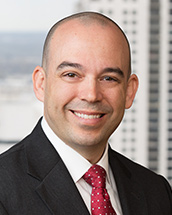In brief
Baker McKenzie’s recent victory in the United States Supreme Court in Yegiazarian v. Smagin, 143 S. Ct., 1900 (22 June 2023), opens the door for non-US plaintiffs to pursue RICO claims when seeking to enforce a judgment or assert claims against U.S. parties or assets. Although the plaintiff in this case was the holder of a foreign arbitration award, the Court’s holding suggests that any foreign plaintiff asserting a claim against or seeking to recover U.S. property will have legal standing to pursue civil claims under federal RICO statutes, and potentially recover treble damages and attorneys’ fees.
Contents
The Court’s decision also extends to foreign representatives in Chapter 15 bankruptcy cases seeking to recover assets that were illicitly transferred from foreign jurisdictions to the United States. While the implications of this case will be explored and more precise legal tests developed in the lower courts for years to come, foreign plaintiffs and Chapter 15 foreign representatives with interests in U.S. business or property now have a new powerful remedial tool available to protect their U.S. interests from the corrupt or fraudulent conduct of others in violation of RICO.
Overview
On 22 June 2023, the Supreme Court ruled in favor of Baker McKenzie client Vitaly Smagin in Yegiazarian v. Smagin, affirming the Ninth Circuit’s decision that RICO claims can be asserted by non-US nationals to seek civil remedies for “domestic injury” sustained in the United States. A multitude of Baker departments and teams worked together to achieve this landmark decision, which we expect to serve as a valuable tool to foreign parties seeking redress for criminal conspiracies centered in the U.S.
Background
The Racketeer Influenced and Corrupt Organizations Act (RICO) of 1970 was adopted by Congress in 1970 as a tool to combat organized crime in the United States. In addition to the substantial criminal penalties, the RICO statutes authorize the filing of civil claims to enable the victims of interstate racketeering activity (often mail or wire fraud) to recover treble damages and attorneys’ fees for injury to their business or property caused by that activity.
In RJR Nabisco v. European Community, 136 S. Ct. 2090 (2016), the Supreme Court held that the criminal provisions of the RICO statutes applied extraterritorially, but required a plaintiff to plead and prove a “domestic injury” to have standing to pursue a civil RICO claim. Because the foreign plaintiffs in that case had waived all claims for recovery of domestic injuries, the Court held that the plaintiffs lacked standing to bring their civil RICO claims but did not provide guidance on what constitutes a “domestic injury” for such claims.
In the face of a developing circuit split regarding what constitutes a “domestic injury” under RJR Nabisco, the Supreme Court accepted review of the Smagin case to decide whether a foreign plaintiff domiciled outside the United States could successfully allege a domestic injury under RICO. In Armada (Sing.) PTE Ltd. v. Amcol Int’l Corp., 885 F. 3d 1090 (2018), the Seventh Circuit Court of Appeals established a strict bright-line rule that barred all foreign persons from asserting a civil RICO claim if the alleged injury was to intangible property. The Baker team, however, persuaded the Ninth Circuit to deviate from the Seventh Circuit’s decision in Armada in favor of a context-specific rule that permitted the courts to consider, among other things, where the alleged RICO conduct occurred. Baker’s exceptional efforts on appeal culminated in a victory at the Supreme Court, which adopted the context-specific inquiry for RICO standing and held that Mr. Smagin’s alleged injury to his U.S. judgment caused by the defendants’ conduct that occurred in or was targeted at California constituted a domestic injury.
Case Summary
Smagin involved a RICO case brought by Vitaly Smagin, a Russian citizen, against Ashot Yegiazarian, a Russian citizen who moved to the United States in 2010, seeking to enforce an USD 84 million London arbitral award stemming from Yegiazarian’s misappropriation of a real estate investment. Baker’s effort resulted in the successful appeal of a district court judgment against Smagin to the Ninth Circuit, which declined to adopt the 7th Circuit’s “rigid, residency-based test for domestic injuries involving intangible property” and instead opted for a context-specific inquiry. This success deepened a developing circuit split that ultimately led to the Supreme Court agreeing to hear the case. In its 6-3 23 June 2023 opinion authored by Justice Sonia Sotomayor, the Court clarified that a foreign-domiciled plaintiff could assert a “domestic injury” under RJR Nabisco, explaining that courts should look to the circumstances around the injury to determine if it took place in the United States.
Applying the Court’s context-specific inquiry to this case meant examining the nature of Mr. Smagin’s alleged injury, the racketeering activity that directly caused it, and the injurious aims and effects of that activity to determine that the activity was “targeted at” California. Under this approach, the Court found that Mr. Smagin had pleaded a domestic injury for purposes of his civil RICO claims. Specifically, the Court found that the property in question (a U.S. judgment against a U.S. resident) was located in the U.S. and that the RICO conduct alleged was directed from and targeted at the U.S., even though some of the conduct occurred outside of the United States. The Court further determined that the residence of Baker’s client Mr. Smagin in Russia did not deprive him of standing to bring his RICO claims.
Implications
The Supreme Court’s decision has a number of implications for future actions by foreign citizens, including foreign representatives in Chapter 15 cases, who now stand on equal footing with U.S.-domiciled plaintiffs to allege domestic injury for RICO claims. Previous standards that used the plaintiff’s domicile as the primary factor for determining domestic injury created material standing issues for foreign residents seeking to assert civil RICO claims, even if the scheme was conducted entirely within the U.S. The Supreme Court explicitly rejected any sort of bright-line residency-based test in favor of a context-specific inquiry. While the inquiry is fact-specific and, as the dissent points out, it is not clear which facts are most dispositive, the door to the remedial scheme provided in RICO is now definitively open to foreign plaintiffs.
There are many possible avenues of utility for this decision. While the case at bar and thus the Court’s opinion involved holders of foreign arbitral awards, any foreign holder of United States property now has more protection for that property than they did previously. Chapter 15 bankruptcy cases, for example, often involve allegations of illicit transfers of assets to or within the United States; now, the foreign representative in such a case has standing to bring a civil RICO claim in a U.S. court, based on identifiable RICO predicate acts that touch the United States. The ability to assert civil claims seeking treble damages under RICO can substantially increase the recovery for key stakeholders.
Going forward, foreign plaintiffs are no longer categorically barred from bringing civil RICO claims solely because they do not reside in the U.S. To achieve this result in the Supreme Court was no simple task as it required the Baker Team to coordinate efforts in a series of interlocking proceedings simultaneously in bankruptcy, district, circuit and Supreme Courts, as well as in related litigation in several foreign jurisdictions, a unique feature of this case that highlighted Baker’s breadth of litigation expertise and global reach.
The authors extend their appreciation to Baker McKenzie summer associate Micah Sperling, UCLA Law 2024, who will be joining the firm as an associate in its New York office in 2024.






